Now Open Registration for the Agroecology Lab Online Course!
Check the Teaching section below for more details and to register.

Dr. Zachary Brym
Agronomy Department
786.217.9238
brymz@ufl.edu | Blg 8235, Rm 1-4
I investigate the intersection and interaction between agricultural and natural systems from the perspective of plant physiology and community ecology. I opened the TREC Agroecology Lab in January of 2017 after receiving my Ph.D. from Utah State University and MS from the University of Michigan.
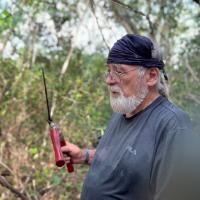
Dr. Cliff Martin
Agronomy Department
Research Associate
cgm@ufl.edu
I am a research associate in the TREC Agroecology Lab. My work primarily focuses on identifying the diversity of plant species at the research station. My main areas of expertise include botany, entomology, and scientific writing. I earned my Ph.D. at TREC in 2009, specializing in ornamental plant and vegetable entomology.

Ajit Williams
Agronomy Department
Ph.D. Student (2024)
agatorwilliams@ufl.edu
I am a research assistant in the TREC Agroecology Lab focused on data analytics and interdisciplinary collaboration. I support the lab in research project operations, data management, and managing hemp germplasm collection. I graduated from the University of Florida in 2017 with a B.S. in Food and Resource Economics and received a M.S. in Agronomy with a concentration in Agroecology in fall of 2023. I have experience in sustainable farming, economics, and cannabis cultivation.

Tamara Serrano
Agronomy Department
Biological Scientist
t.serrano@ufl.edu
I lead and support the TREC Agroecology Lab’s daily operations, experiments, and outreach initiatives to promote sustainable farming practices that align with nature. I hold a B.S. in Horticultural Sciences with a minor in Soil Sciences (2020), a certificate in Horticultural Therapy (2021), and an M.Sc. in Agronomy with an Agroecology concentration (2023) from the University of Florida. My expertise includes plant nutrition, crop productivity, soil health, and agricultural management.
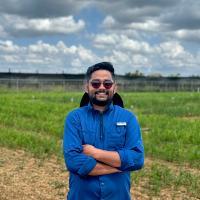
Muhammad Alamgeer
Agronomy Department
Research Scholar
alamgeer.m@ufl.edu
I have been working as a research scholar in the agroecology lab since April 2024, after getting my MSc in agronomy from the University of Agriculture Faisalabad, Pakistan. I am involved in research focusing on nutrient, carbon, and conservation management practices in diverse agroecosystems, including, but not limited to, hemp.
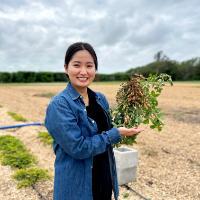
Da Young Kim
Agronomy Department
Ph. D student (2021)
dayoung.kim@ufl.edu
I joined the TREC Agroecology lab in the fall of 2021 as a Ph.D. student and am working on the Peanut Aflatoxin Project. I completed my master's degree in the Department of Environmental Horticulture at the University of Seoul in Korea, where I specialized in soil science. I am interested in understanding soil-plant-environment interactions to manage cropping systems better and ensure food and feed safety.
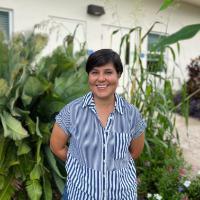
Catalina Obando
Agronomy Department
Field Technician
c.obando@ufl.edu
I am an industrial designer, farmer, and entrepreneur passionate about agroecology. I work at the Tropical Research and Education Center (TREC) and actively share my experiences through various platforms, including workshops, social media, and blog posts. My primary goal is to promote sustainable and ethical farming practices and to inspire and educate others about the principles of agroecology.

Bruno Pasquale Rozzi
Agronomy Department
Ph.D. Student (2023)
Brozzi@ufl.edu
I am a Midwest boy from Cincinnati, OH, with a bachelor’s in Biological Sciences from Arizona State University. After working as a research specialist for the USDA-ARS and the Pauli Lab at The University of Arizona, I joined the TREC Agroecology Lab to pursue a Ph.D. in Interdisciplinary Ecology with a concentration in Agronomy. I am a remote student based in St. Petersburg on the Gulf Coast. My research encompasses soil carbon sequestration and land restoration on clay settlement areas in the Central Florida Phosphate District. I am interested in developing regenerative cropping systems at scale under the lens of agroecology. I have a deep love for the natural world, and my interests include hiking/backpacking, rugby, tennis, music, film, holistic health, and spending as much time as possible at the beach.
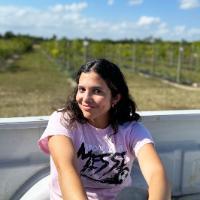
Kiara Gerena
Agronomy Department
Graduate Student (2024)
kiaragerena@ufl.edu
I am a graduate student pursuing a master's degree in Agronomy with a concentration in Agroecology. Currently, I am working as a student assistant in the Agroecology Lab, where I share my knowledge and research skills in sustainable agricultural practices!

Christian Rosa
Agronomy Department
Agricultural Assistant
c.rosa@ufl.edu